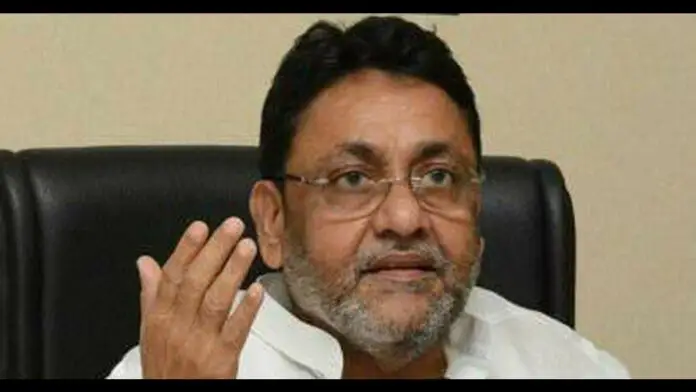
A Special Narcotic Drugs and Psychotropic Substances (NDPS) court granted bail to the son-in-law of the leader of the Nationalist Congress Party (NCP), Nawab Malik, Sameer Shabbir Khan, British citizen Karan Sejnani and prominent manager Rahila Furniturewala. They all were arrested in drug cases by the Narcotics Control Bureau (NCB). Justice AA Joglekar (Additional Session Judge) granted bail to all the accused.
Khan was arrested in January with two others but was released on bail last month.
Advocate Taraq Sayyed, appearing on behalf of the defendant, contended that the substances seized from Khan were only tobacco and herbal products and did not fall under the NDPS law. He further stated that there was nothing to suggest that he funded the illegal drug trafficking in order to be charged as per the provisions of the NDPS Act.
NCB prosecutor, Atul Sarpande alleged that around 200 kg of marijuana had been confiscated and sent to a forensic laboratory in Gujarat in January from Sejnani’s residence in Khar, of which 83 kg was tested positive for narcotics and psychedelics.
Based on the Chemical Analyzer (CA) report on the seizures, the NCB attached to the charge sheet against the defendant, the court found that Sections 27 A and 29 of the Narcotics Drugs and Psychotropic Substances Act (NDPS) on funding and illegal drug trafficking and a conspiracy against Khan could not be sustained.
“It is pertinent that the applicant accused (Khan) has already stated that he conducts such business about nicotine products. Now, because the CA report has specifically enumerated the contraband material to 11 samples to have not detected for cannabis, the theory of the prosecution concerning the invoking of section 29 fails and apart from the said contention in the reply, nothing is brought on record to show the factum of connivance with each other or that of conspiracy prima facie,” the court said.
The court was also briefed during the bail dispute about two conflicting punchnama related to alleged drug recovery and the fact that one was not part of the charge sheet. “This particular aspect propagates for the conduct of the investigating machinery and the reason for not incorporating the said panchnama is not answered till date,” said the court.








